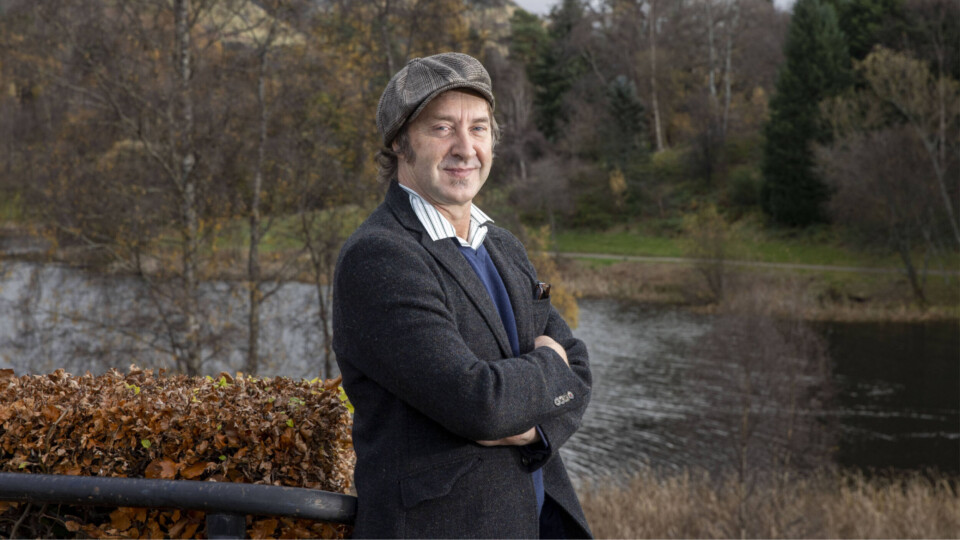
Looking back, thinking ahead: Simon MacKenzie
Fish Farming Expert has asked individuals connected to the salmon farming industry about their year, and what they hope for in 2022. We continue the series with the recently appointed head of the University of Stirling’s Institute of Aquaculture, Professor Simon MacKenzie.
The Institute of Aquaculture is a significant contributor to research benefiting both the Scottish salmon industry and farmers of other species of fish and shellfish farmed throughout the world. What’s been happening at the Institute in 2021?
I’m truly proud of the way our students and staff have responded to the ongoing challenges of the pandemic and Brexit, and that resilience is shown in our research. We have continued to explore the impacts of climate change, to develop new solutions for a sustainable salmon industry, to be part of far-reaching EU projects and to contribute globally to the blue food economy.
Dr Lynne Falconer secured a £1.5 million UKRI Future Leaders Fellowship to use data from salmon farms along the coasts of Scotland and Norway to measure the impacts of climate change and offer better tools to the industry.
Our ongoing, innovative projects into the use of single cell protein from industrial emissions or insects as fish feed have continued to attract interest and funding to support the circular economy.
Multi-partner European projects such as GAIN, looking into possible uses of fish by-products, for example, the AQUAEXCEL work, which we lead, or the Circles project I am involved in, keep us at the cutting edge of European knowledge.
On the global stage, Professor Dave Little was part of the scientific leadership team behind the Blue Food Assessment, and recent research combatting stereotypes in Bangladesh was recognised by the UK Government’s Foreign, Commonwealth & Development Office.
What was the most significant event of 2021 for the IoA?
A change of leadership is always significant and is of personal interest to me! But the significance of welcoming £17 million of funding under the City Region Deal to deliver a National Aquaculture Technology and Innovation Hub (the Aquaculture Hub) cannot be underestimated.
This is, of course, exciting for the new, state-of-the-art laboratories and aquatic experimental facilities that will underpin our world-leading researching and teaching.
But it’s also, crucially, about regional collaboration to develop and deliver the skills of the future. New partnerships will enable our experts to conduct dynamic and commercially relevant research in partnership with leading aquaculture companies. By bringing industry partners into the Institute, we will translate ground-breaking scientific research into practical, applied solutions that support economic development in communities from rural Scotland to South America, Africa and the Middle East.
In doing so, UK expertise and technology will be placed at the centre of efforts to support a sustainable international industry, while enhancing global food security.
What are the most significant challenges and opportunities for aquaculture in the coming year?
Ensuring that the Scottish Government’s Blue Economy Action Plan is a success will be crucial, and for us, that will take collaborative research across the stakeholder landscape. And I don’t just mean ‘the fish stuff’, but associated skills from areas such as the digital economy – data analysis, for example – or working with buyers to ensure welfare assessments are part of the value chain.
And of course, making sure we understand the impacts of climate change, and mitigate them, to support sustainable, resilient and secure aquatic food systems that deliver health and prosperity for people and for the planet.
On Monday: Scottish Sea Farms’ head of sustainability and development, Anne Anderson.























































